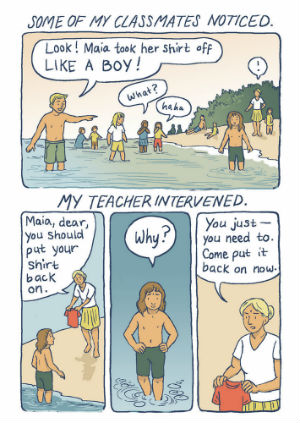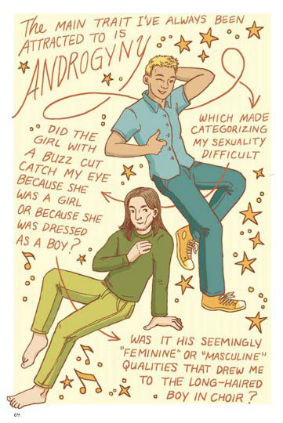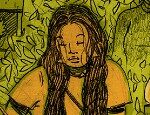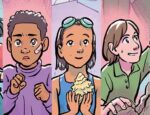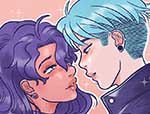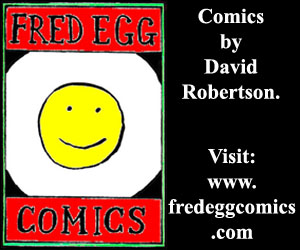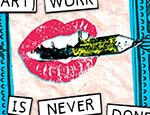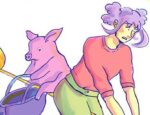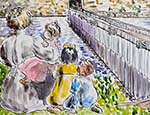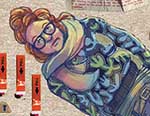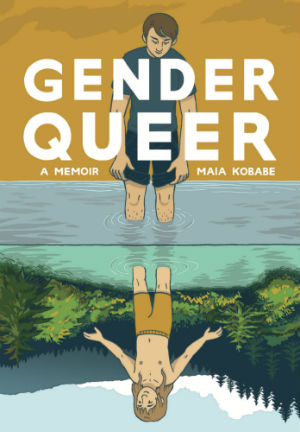 “I don’t want to be a girl. I don’t want to be a boy either. I just want to be myself.”
“I don’t want to be a girl. I don’t want to be a boy either. I just want to be myself.”
By the very nature of the form – that special interpretive interaction between reader and page, audience and creator – comics is a particularly effective medium for conveying life experiences with a unique resonance, insight and empathy. Maia Kobabe’s Gender Queer: A Memoir – an account of the artist’s road to identifying as non-binary and asexual – is one such narrative. Autobiographical comics at their most quietly powerful and communicative.
Kobabe uses the pronouns “e/em/eir” which it’s possible not all readers will have encountered before. But hopefully, by the time we get to the end of this review, you’ll be very familiar with them. Reading almost like a scrapbook of eir life from childhood to the current day, Gender Queer allows the reader to join Kobabe in parallel across the years as e explores and discovers eir identity.
It’s a story that initially reminds us that many of the social constructs we take for granted as children are just that… constructs. Eir early gender-related memories show up the arbitrary nature of those “rules” (an unconventional upbringing putting that into sharp contrast) and how absurd being forced to fit into defined roles is when examined with an objective and critical eye. We view events from Kobabe’s perspective as at times e struggles to understand both the school and college environments around em, and slowly begins to question and explore eir sexuality and identity in relation to eir body. In one key sequence early on eir sister makes the comment she always believed em to be a genderless person; a moment both touching and crucial given how deeply themes of family ripple just under the surface of Gender Queer.
Kobabe’s unflinching honesty enlightens and communicates. E invites us into an account of eir own confusion and self-discovery over the years in a memoir that is powerful for its admirably uncompromising honesty. We, as readers, learn as e does as Kobabe talks about accepting eir asexuality, the awkwardness of relationships, coming out to family, and eir own self-doubts. It’s a book that is so important because we come away from it feeling we have shared in Kobabe’s life experiences; from the joy of the Queer-Straight Alliance at school to the terror of internal examinations, from profound philosophical reflections on what gender meant to eir younger self to frustration with emselves at comic conventions at not feeling able to correct unintentional misgendering.
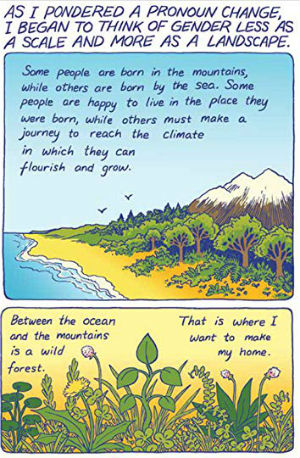 From the perspective of pure comics craft Kobabe’s use of speech balloons and lettering as narrative tools that enhance and embody theme and emotion is notable throughout. E knows intuitively when to use sequential, panel-to-panel layouts to recreate the drama of events and when to step back from that traditional comics storytelling and allow more freeform and representational visual metaphor capture the tone and immediacy of the moment. One section explaining gender “less as a scale and more of a landscape” is particularly effective in its visual articulacy. And Phoebe Kobabe’s colouring also plays a vital role in emphasising mood and theme.
From the perspective of pure comics craft Kobabe’s use of speech balloons and lettering as narrative tools that enhance and embody theme and emotion is notable throughout. E knows intuitively when to use sequential, panel-to-panel layouts to recreate the drama of events and when to step back from that traditional comics storytelling and allow more freeform and representational visual metaphor capture the tone and immediacy of the moment. One section explaining gender “less as a scale and more of a landscape” is particularly effective in its visual articulacy. And Phoebe Kobabe’s colouring also plays a vital role in emphasising mood and theme.
Gender Queer will no doubt be an offering that will connect with readers who have gone through similar journeys but it’s also a book that gives cisgender readers a vital opportunity to observe entrenched gender structures from an alternative perspective and to challenge the preconceptions they may not even realise they are harbouring. One of the most important graphic memoirs you’ll read in 2019.
Maia Kobabe (W/A), Phoebe Kobabe (C) • Lion Forge, $17.99
Review by Andy Oliver





